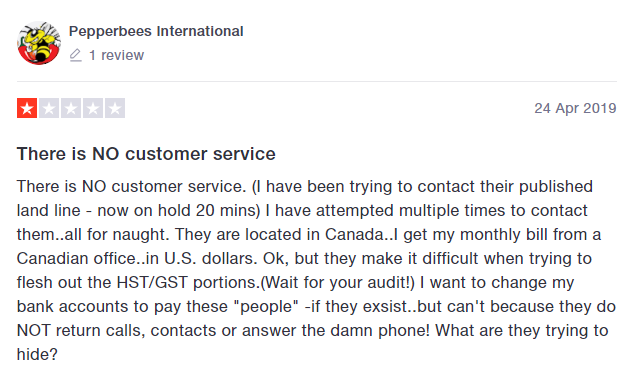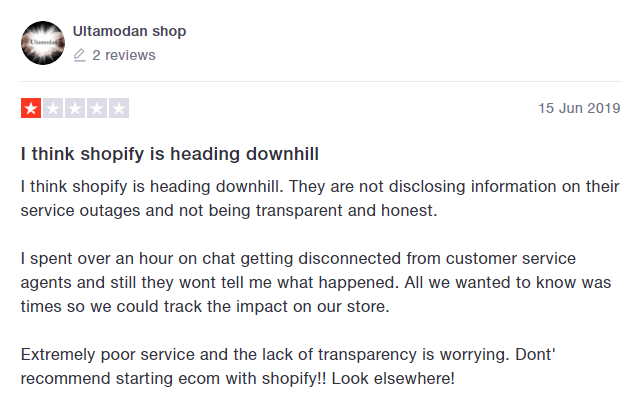Shopify
Shopify seems to be a trending eCommerce platform of late, but is it really worth all the hype?
Shopify is possibly one of the most popular eCommerce platforms at the moment. With huge multi-national brands such as Kylie Cosmetics and Gymshark choosing to partner with Shopify, no wonder a vast amount of eCommerce businesses want to jump on the Shopify bandwagon. But have you ever stopped to consider if Shopify is the right platform for you?

This graph shows the trends over the last five years, for the following search terms; Shopify (blue), Magento (Red) and WooCommerce (Yellow). It’s quite clear to see that Shopify, is by far, the more popular searched eCommerce platform, with quite sizeable growth.
How it all began
Shopify was developed as a simple, out of the box eCommerce solution. Designed to be eye-catching and stylish, and it was easy for anyone to create a website and start selling their products. For quite a low monthly fee, they were able to flood the market with their platform.
Like so many other eCommerce platforms, Shopify launched their own marketplace, to allow users to add apps to their website. Which meant you could tailor your site to what you needed for your business to grow. The downside, everyone on the platform has access to these add-ons, so all Shopify sites still looked very similar.
Basic Shopify
The following list is everything that is included in the Basic Shopify package:
- Online store which includes a blog
- Unlimited products
- 2 staff accounts
- 24/7 support
- Sell on online marketplaces and social media
- Manual order creation
- Discount codes
- Includes an SSL certificate
- Abandoned cart recovery
- Fraud analysis
Anything outside of this, you will need to update your plan, which comes with an additional price tag.
Shopify Plus
After saturating the standard eCommerce market, it was time for Shopify to make the leap into enterprise-level eCommerce platform – Shopify Plus.
Shopify Plus includes all the basic features of Shopify with some additions:
- 15 staff accounts
- Gift cards
- Professional reports
- Advanced report builder
- Third-party calculated shipping rates
- Reduced rates for transaction fees
- Full point of sale functionality
- Superior level of support via a dedicated ‘Merchant Success Manager’
Shopify pricing
Basic Shopify is a reasonable price of $29 per month (remember this is a licence fee and does not include the development of the website), and then with each increasing platform level, there is an increase in its monthly fee. Until you reach Shopify Plus. Prices are on a request basis only, and costs are likely to be negotiable, but they sit around $2,000 per month - quite pricey.
|
Basic Shopify |
Shopify |
Advanced Shopify |
Shopify Plus |
|
|
Monthly price |
USD $29/mo |
USD $79/mo |
USD $299/mo |
USD $2,000/mo |
|
Estimated build cost |
Basic website (no customisation) – Approx. $1,000. |
|||
Things to consider:
Style over substance?
Shopify is fantastic at marketing their platform. They utilise their 100+ Partner Agencies and leverage the success of multinational brands that use their platform. As a result, smaller businesses can become blinkered and easily miss Shopify’s many drawbacks.
Features come with a price tag
If you want anything more than a basic eCommerce site, you will need to have deep pockets to be able to afford all the additional features. That means having to pay for the more advanced platform plus additional apps.
Limited ecosystem
This could be a positive, as some people want something that is easy and simple, but if you are looking for something that is more than a basic platform with limited functionality, a true enterprise-level platform, you’re going to have to pay around £24,000 a year. This is just not achievable, for the majority of eCommerce businesses, and too stifling for those medium-sized businesses that want to take the next step of growth.
Annoying URL structure
Shopify structure their URLs poorly, so they aren’t ideal for SEO and seem to have unnecessary “junk” added to them. You can’t edit it, and you can’t have a custom URL. For example, see below, there is no need to add the “/pages” into the URL as it provides no real value.
![]()
Limited category levels
Shopify does not support multi-level categories beyond the initial two. This may not be so important to the entry-level businesses but for the companies that sell a vast range of products, this could be a huge limitation.
Professional reporting
The more insightful reporting is excluded from the Basic Shopify package, so you’ll need to pay a minimum of $79 a month to have this functionality. This is one of the most discouraging aspects of the Shopify platform. Professional reporting shouldn’t be limited to those with deeper pockets. Businesses with small budgets really need the benefits of reporting to help their business grow.
Shopify’s own coding language – Liquid
Liquid uses a combination of tags, objects and filters to load dynamic content. They are used inside Liquid template files, which are the files that make up a theme. This means that if you want these to be customised, you will have to pay an incremental price. Yet again, these are more costs to factor into the overall website spend.

Support as good as it lives up to?
Having the ability to contact Shopify support 24 hours a day is fantastic, in an ideal world. However, this is not an ideal world. There have been quite a few negative reviews regarding their support. Something to bear in mind if you were looking for more of a personal touch.
Shopify evaluation
Shopify is a great looking platform but lacks functionality, especially if you aren’t paying for Shopify Plus. Their platform will be a perfect fit for certain business, but if you want flexibility and bespoke features, you will be greatly limited by what the platform can offer and how far your budget can stretch.
They seem to have shifted their focus from SMEs and moved over to the larger multi-national brands, who presumably provide them with greater profit margins. For example, the dedicated ‘Merchant Success Manager’ is only for Shopify Plus customers, but all customers should have a dedicated manager to help them to develop their eCommerce business.
At Iconography, we believe that every client should be treated as an individual, and have a bespoke website developed especially for them. Our Client Account Managers work together with the client to achieve their business goals. If clients need additional support or technical advice, we will always be here to help.
Get in touch
If you’re looking to migrate from Shopify or would like more information about our bespoke enterprise-level eCommerce platform, call us on 01460 258 530 or email us today.
Contact UsEveryone is super helpful all the time, always helping us understand what we need to do and what we are asking you to do.
Natalie Lewis, Washware Essentials
Get in Touch

